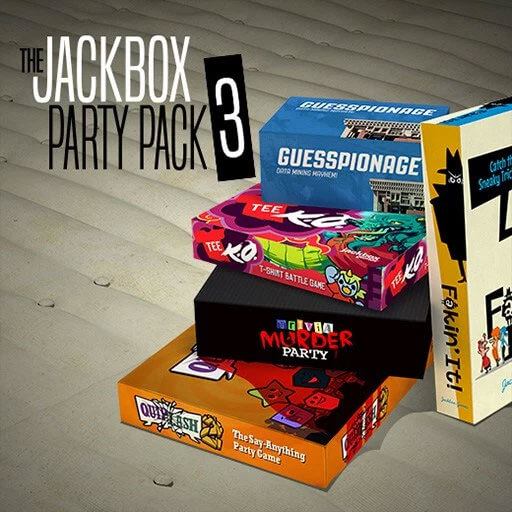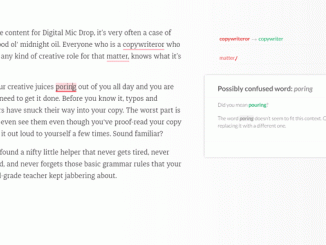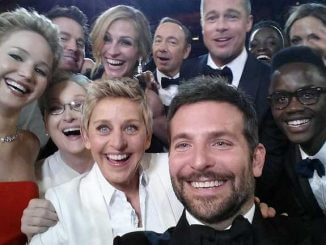Have you ever played the computer game You Don’t Know Jack with your friends or family? If you haven’t, you have missed out all this time.
Our Community Manager Shaena is a big fan and has spent countless hours with her friends playing YDKJ and simultaneously wiping her tears from laughing so hard at the game and at her friends. And still, to this day, she can’t get over how hilariously witty the game is.
Naturally, as marketers and people who love funny and creative lingo, we wanted to find out where all this wit is coming from, how this outrageously funny game came about and last but by no means least - how it was marketed in order to become such a mega-success.
So, Shaena connected with Harry Nathan Gottlieb, Founder & Chairman, and Mike Bilder, CEO, at Jackbox Games to get our curiosity tamed and our questions answered.
This is Jackbox Games:
Jackbox Games was founded in the United States in 1995. Their family trivia quiz game You Don’t Know Jack became a mega-hit and numerous versions of the game have been published since. Jackbox Games is also the masterminds behind many other popular apps and games such as Drawful, Quiplash, Lie Swatter, Clone Booth, Word Puttz, Fibbage and Tee K.O. to name a few.
“Turns out that people like being made fun of by a voice on a computer. I never thought that this crazy game would be our first big success.”
Hello there, Harry and Mike!
I have been a huge fan of all your games and have been playing ‘You Don’t Know Jack’ since I was in high school. Tell me, how did the idea for the game come about?
Harry: Some of our earliest projects were funny educational films. And then educational multimedia. We created a CD-ROM series for middle school students called THAT’S A FACT JACK! It quizzed the kids on works of young adult literature but in an interactive game show format. There was a video host who felt like he was talking to you.
A friend named Igor Gasowski working at a place called Berkeley Systems in California saw it and cajoled us into creating a retail game for an 18+ audience based on the same format.
I never much liked trivia games but thought if we could make it funny, even if you get it wrong (especially if you get it wrong), maybe we’d be on to something.
Turns out that people like being made fun of by a voice on a computer. I never thought that this crazy game would be our first big success.
What is the next big thing in marketing in the gaming industry?
Mike: We’ve had a lot of success with allowing our players to tweet out funny things that happened for them in our games, a drawing or something funny they wrote.
People want funny things to share, especially if it’s something they did, and the fact that our games already use phones as controllers makes that even easier to do.
In one of our games in Party Pack 3, Tee K.O, you can even order a print-on-demand t-shirt of some of the weird things you draw in the game. I don’t know if that’s the next big thing in marketing but it sure does seem cool.

Why do you think it became such a whopping success?
Mike: We like to think it’s because we’re careful to write our hosts to feel like you’re really interacting with them, not just listening to a bunch of pre-recorded lines. Which, let’s face it, is what you’re actually doing.
Also, we’ve worked with some insanely funny writers and performers. Comedy in games is hard because the player controls the pacing.
We try to work around that limitation, or where we can, call it out and use it as its own joke, like when we make fun of players for taking too long to pick a category, and just pick one for them.
Harry: From YOU DON’T KNOW JACK in the 90’s to the games in the Jackbox Party Packs today, like Fibbage, Drawful, and Quiplash, our games have always been focused on bringing people together to have fun and laugh.
That to me is the real magic of games: they create this wonderful social interaction and they allow us to connect to each other with a little competition and lots of smiles.
If you could ask every online marketer to stop doing just one thing right now, what would that be?
Mike: Emailing me.
“These days we’ve discovered what a great marketing resource Twitch can be.”
You launched your first game in the early days of the internet – how did you market it then and how do you market it now?
Harry: The internet in October of 1995 was just over four years old. I don’t know if the launch plan for YDKJ had even a single internet component. It was all about retail – meaning, in physical stores.
We had a ‘Try It-Buy It’ program with the game running on a continuous loop on a display (you could walk up and just start playing at any time since the game would keep running even if there were no players) and sample CD-ROMs with five games were stacked up at check-out.
Mike: These days we’ve discovered what a great marketing resource Twitch can be. We’ve put a lot of thought and time into making our games work well when played via Twitch.
We’ve added features like extended timers and the ability to play with an audience of 10,000 players that are valuable for Twitch broadcasters.
Twitch and let’s play videos have become great marketing opportunities for our games. Many people first learn about our games from watching them play online.
If I gave you an additional 100,000 USD marketing budget, how would you spend it?
Mike: I’d give it to our one millionth twitter follower.
Harry: I’d use it on an A-list celebrity, who could host and promote one of our games. One can dream…
There’s a lot of buzz around video content, and you guys create the funniest videos in your games! Do they convert well in your marketing campaigns?
Mike: Sort of. We love making funny standalone pieces like the commercials we do over the credits of Jack and the trailers we create when we launch new products.
We get a lot of feedback that people love those. I think it helps shape the idea in people’s minds that the personality of our company is one they can identify with.
As for turning that into measurably successful marketing, we do try to put our voice into the ads we do, but with limited budget and exposure, it’s hard to tell. It’s less about strategy and more that if we have to do a YouTube trailer anyway, we’re probably going to try to make it funny.
“We’re interested in pushing the boundaries of social interaction through games.”
You have since rolled out several hugely popular titles – all equally quirky and fun. How do you reinvent yourself?
Mike: Doing a Party Pack of games each year is helpful. The first pack had YOU DON’T KNOW JACK in it, but it also had several all new games that people maybe wouldn’t have taken a chance on all by themselves.
And each new Pack allows us to improve on the things people expect from us but also use some of the game spots to intentionally try to broaden the scope of what we do and try out weird new things.
A big part of reinvention is giving yourself the freedom to try out new things that could fail.
Harry: We’re interested in pushing the boundaries of social interaction through games. Now that everyone is walking around with a computer/microphone/screen/speaker/drawing/typing device in their pocket…it opens up a world of new opportunities.
If we wanted to create and roll out a Mic Drop game, what would your best advice be in order for us to get at least a few people, that are not related to us, to buy it?
Mike: Get at least a few people you’re not related to to play it. Free pizza and beer helps. Keep testing until you find the equilibrium between ‘thing that we like’ and ‘thing that enough people with money like.’
Harry: Tell people by playing the game they’ll look younger, feel more vibrant, lose weight and be more attractive. That approach seems to really drive sales in a lot of industries.
Ok, thanks for the hot tips! Last question:
What is the craziest marketing stunt Jackbox Games have either attempted or pulled off?
Harry: As part of our ‘Try It – Buy It’ program, in 1997, we rented not one, but five blimps to fly over Manhattan together in formation. The top one had a YDKJ trivia question, and each of the four below had an answer choice on it. It exposed the brand to over two million people.
Mike: That never happened.
Harry: What’s your point?
Mike: That we never did that.
Harry: Yeah, but it would’ve been cool if we had. It’d sure be a better use of $100,000 than blowing it on a single Twitter follower.
Mike: Okay, you get the $100,000 from Mic Drop and I’ll get the blimps.
Harry: Deal.
Harry and Mike, thank you so much for chatting with us and we can’t wait to show you the snazzy Digital Mic Drop t-shirts we are about to design with your new Tee K.O. game!




Leave a Reply